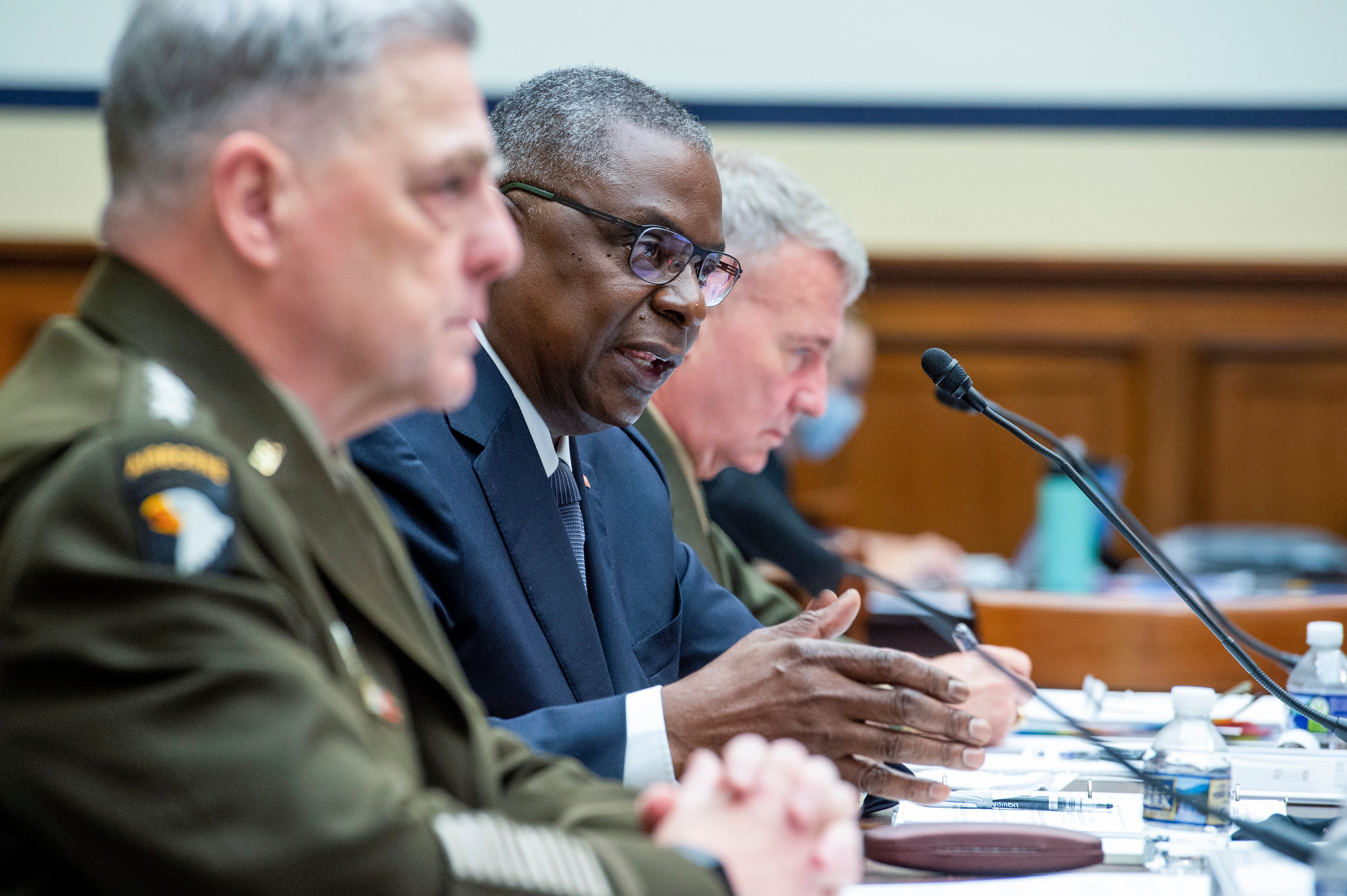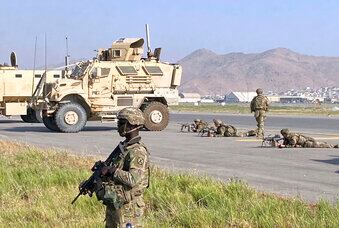The former U.S. ambassador to Afghanistan testified Tuesday that the U.S. could have kept that country stable and secure for years to come, but only if they increased the permanent American military presence there to about 5,000 troops.
“There are conflicts that cannot be won in a classical sense, but can be managed. And that is where I think we were in Afghanistan,” said Ryan Crocker, who served in the ambassador post under President Barack Obama.
“We threw away a chance to further ensure the security of our homeland, and global security, with a very modest force there.”
Crocker’s comment came at a House Foreign Affairs Committee hearing on the U.S. withdrawal from Afghanistan in August, ending the nearly 20-year American military presence there.
RELATED

The event was the latest in a series of Capitol Hill inquiries into mistakes made in the conflict, most of which have devolved into partisan attacks over who is to blame for the Taliban takeover of the country.
The House hearing followed that format, with Republican lawmakers criticizing President Joe Biden for the “frantic” final weeks of the withdrawal and Democratic representatives pointing to former President Donald Trump’s agreement with the Taliban in 2020 to get all U.S. forces out of the country.
Meanwhile, witnesses at Tuesday’s hearing — all former diplomatic and security officials, not Defense Department officials — sparred over whether the U.S. military effort should have ended at all.
In multiple national addresses this summer, Biden said the threat to U.S. forces in Afghanistan was not worth the uncertain security return of keeping a sizable military presence there. Crocker disagreed.
“You don’t end a war by withdrawing your forces,” he said. “You simply cede the field to others who have more patience and more staying power.”
He supported the idea of a rotating force in the region, similar to the U.S. footprint in South Korea or Germany. Administration officials have dismissed that comparison, saying that Taliban officials would have resumed attacks on U.S. forces if they didn’t leave by this fall, per an agreement made with former President Donald Trump last year.
Last week, Joint Chiefs Chairman Gen. Mark Milley publicly acknowledged that he supported leaving a force of 2,500 to stay in Afghanistan, to maintain stability there. But Biden overrode that recommendation.
H.R. McMaster — a retired Army lieutenant general who served as National Security Advisor to Trump and led a combined joint inter-agency task force in Afghanistan from 2010 to 2012 —called the idea that U.S. military forces can conduct effective strikes against terrorist groups in the region without an on-the-ground presence little more than “a pipe dream.”
RELATED

That sentiment drew support from several conservative lawmakers but criticism from other panelists.
“We could not prevail in Afghanistan,” said Richard Armitage, Secretary of State under President George W. Bush. “It’s not because our soldiers aren’t the best, they are … The problem is corruption.
“I’m not surprised at the speed with which [the democratic government] fell because Afghan soldiers felt that their corrupt government was not worth the sacrifice of their lives.”
A Pew Research poll conducted in late August found that a majority of American adults supported pulling all troops out of the country (54 percent, with 42 percent opposed to the idea) but 69 percent said the United States mostly failed in achieving its goals in the country.
Tuesday’s hearing was one of three conducted by congressional committees on the topic of Afghanistan this week, following two with Pentagon leaders last week. More are expected in the weeks to come.
Leo covers Congress, Veterans Affairs and the White House for Military Times. He has covered Washington, D.C. since 2004, focusing on military personnel and veterans policies. His work has earned numerous honors, including a 2009 Polk award, a 2010 National Headliner Award, the IAVA Leadership in Journalism award and the VFW News Media award.





